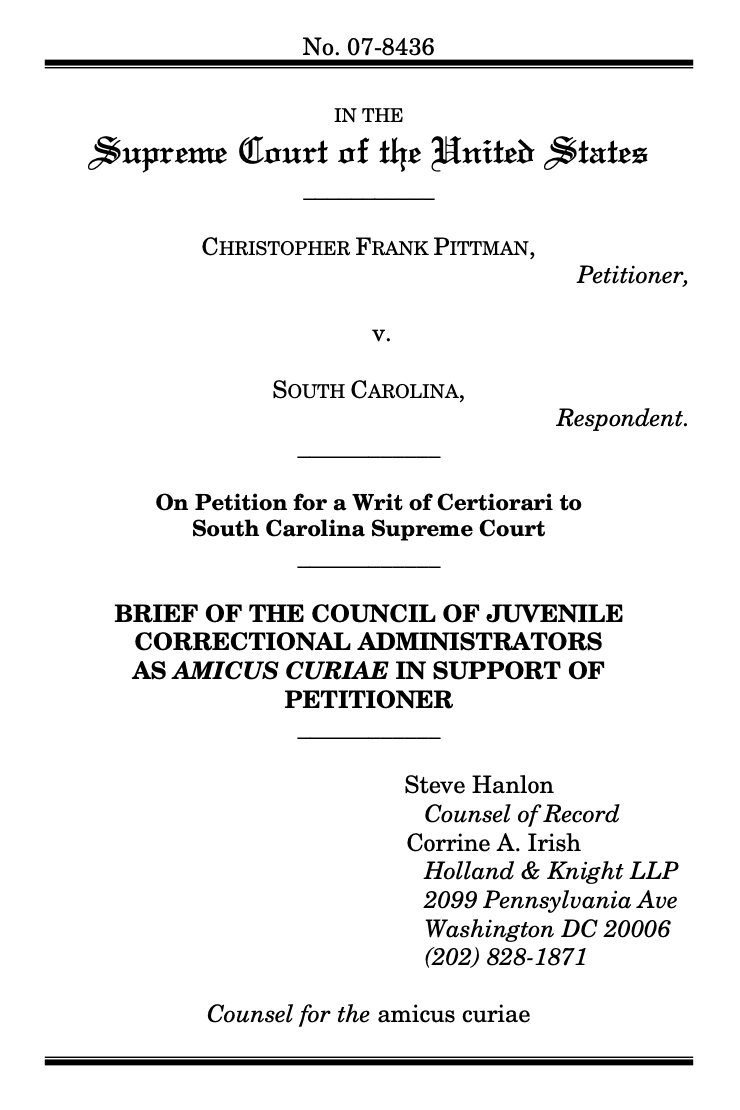
Summary of Argument
This case presents an extreme and unusual case - a twelve-year old boy who killed his grandparents - who was waived up to adult court, and given a thirty-year sentence with no possibility of parole. It appears that this was an uninformed and unfortunate decision. It was uninformed because of the absence of sufficient guidance as to the appropriateness of keeping young offenders such as Petitioner Pittman within the juvenile system. It was unfortunate because had this decision been fully informed, it is highly unlikely the juvenile system would have expelled this young child to be tried as an adult, thereby resulting in a sentence that would allow no opportunity for parole for thirty years.